Is iPhone 16 really worth it?
![]() 11/04 2024
11/04 2024
![]() 636
636

01
Is iPhone 16 really worth it?
The launch of iPhone 16 has been shrouded in mystery.
On October 20, news about Apple's participation in Tmall's "Singles' Day" sale on its flagship store sparked a trending hashtag: #iPhone16 officially drops price by a rare 1600 yuan#. This left many consumers who had just purchased the new phone in physical stores feeling "the sky had fallen".
While this isn't the first time Apple has discounted its phones, the price adjustment just a month after launch still surprised many. After all, even with the less successful iPhone 15, the first price drop didn't come until three months later.
But if you're observant, you'll quickly notice a prerequisite for the iPhone 16 discount—using a Tmall 500 yuan surprise coupon. To put it bluntly, Apple's official website and offline retail stores haven't lowered prices; it's the e-commerce platform footing the bill to subsidize Double 11 users.
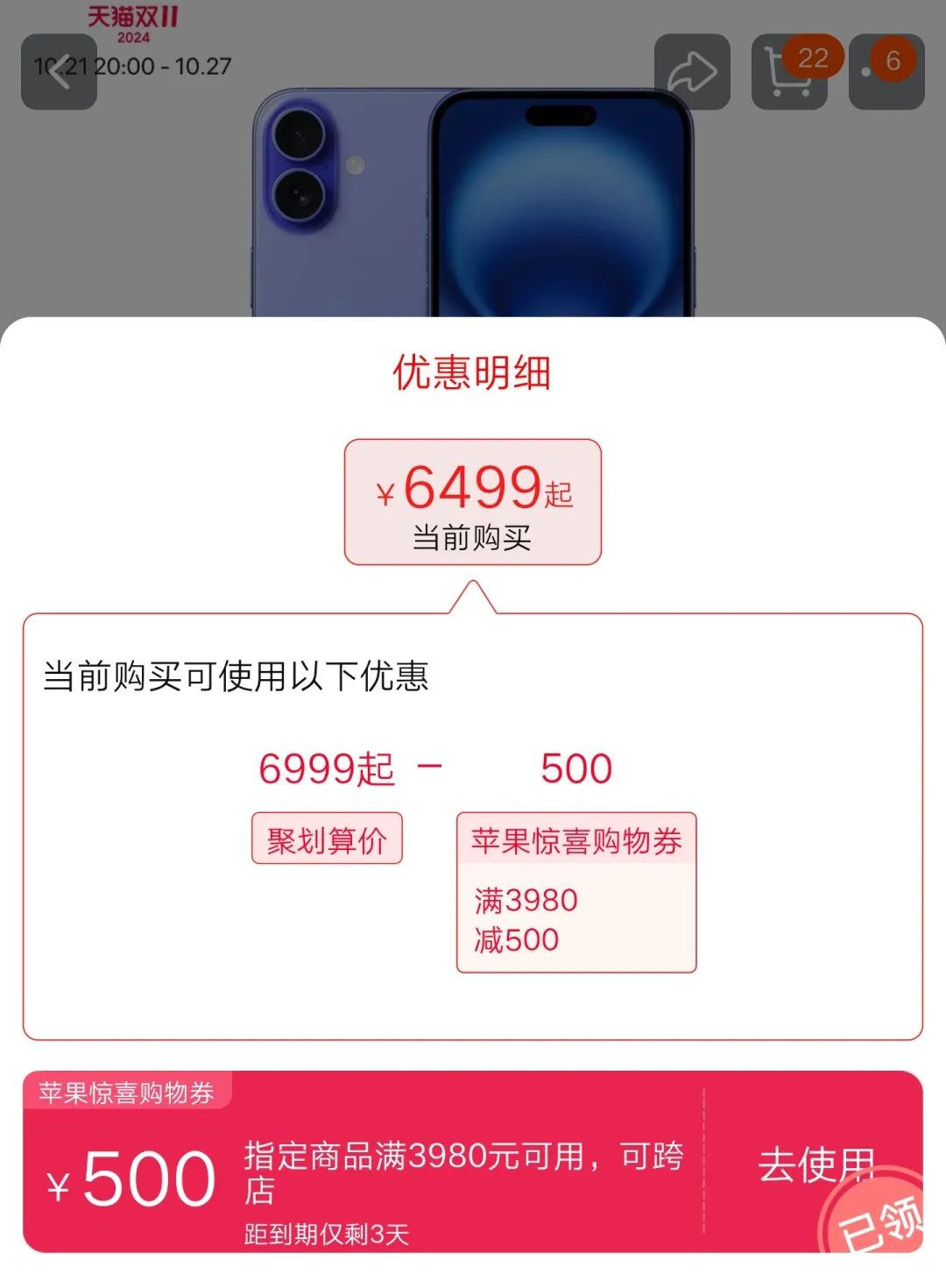
Of course, Apple happily accepted this, even if it landed on the trending "launch price break" list, sparking speculation that Apple's sales were slumping.
Objectively speaking, the situation facing iPhone 16 isn't as difficult as it was for iPhone 15 in its early days. When the entire iPhone 15 series price drop was announced in mid-January 2024, and the regular iPhone 15 hit the 4000 yuan price range, Apple faced one of its toughest challenges ever. Market research firm Counterpoint Research data showed that iPhone 15 series sales in China within 17 days of launch underperformed compared to the iPhone 14 from the previous year.
At that time in the Chinese market, Huawei's Mate60 series, released simultaneously, sold over 400,000 units in two weeks. This landmark phone, equipped with domestically produced chips, posed a challenge to Apple. According to an analyst report from Wall Street investment bank Jefferies, Apple phone sales in China fell 30% year-on-year in the first week of 2024. A few days later, Apple unusually announced a price drop for its new phones.
Many believed this sales slump would spill over to the iPhone 16, and Apple's "true love" law was gradually failing in China. After all, there were reports that pre-orders for the iPhone 16 in its first week were only 37 million units, a 12.7% decrease from last year's iPhone 15.
But a turnaround came quickly. According to the latest Counterpoint Research report, iPhone 16 sales in China in the first three weeks after launch were 20% higher than those of the iPhone 15 during the corresponding period. More crucially, sales of the high-end iPhone 16 Pro and Pro Max models were strong, 44% higher than the previous generation.
On one hand, the new phone is selling better than the previous generation right out of the gate. On the other hand, e-commerce platforms are tacitly subsidizing Apple's official flagship store with significant promotions. These seemingly contradictory phenomena can easily raise doubts about Apple's true situation.
To find rationality, one possibility is that changes in the industry environment have rendered "year-on-year" data less valuable for Apple's confidence—2023 was the lowest point for the smartphone industry in a decade, with global shipments falling 3% year-on-year. Since 2024, however, the smartphone market has gradually recovered, with global shipments increasing 4% year-on-year by the third quarter of 2024, and further growth expected in the fourth quarter.
In a growing market, comparing the current market share change may be more indicative of industry issues than comparing it to the same brand's previous year's base. Adjustments to the new phone market strategy may reflect data trends that Apple's management sees as necessary to defend its brand position.
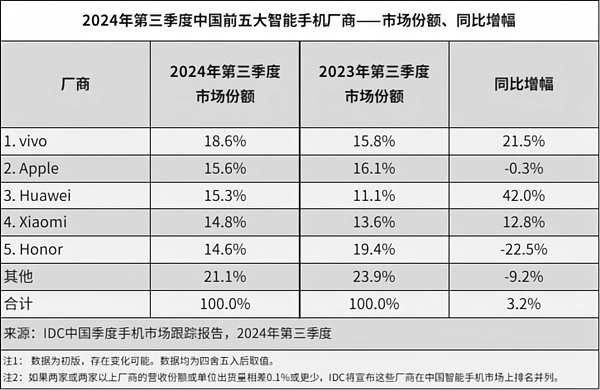
For example, the latest IDC data shows that Apple's global sales increased by 3.5% year-on-year in Q3 2024, but its market share fell by 0.1 percentage points year-on-year. However, its high-end market rival Samsung fell even more. In comparison, Apple's sense of crisis in the global market may not be as strong. But the situation is different in China—in Q3 this year, Apple's market share fell by 0.5 percentage points, while Huawei's rose by 4.2 percentage points and Xiaomi's by 1.2 percentage points.
However, considering that sales only began on September 20, Q4 sales data will be more convincing in determining whether the iPhone 16 is a success and whether Chinese consumers still love buying Apple phones.
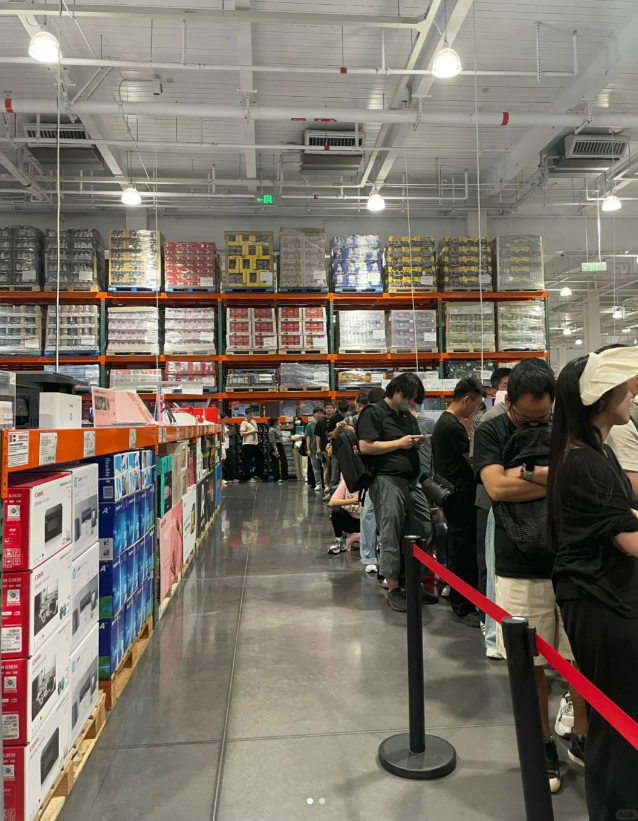
▲Queues for iPhone 16 at a Costco supermarket in Shenzhen on September 25
Source: Xiaohongshu user @Gaby
Voices "singing the blues" about Apple have been rampant since 2024. Amidst these disagreements, it's worth delving deeper into the question: Has Apple truly fallen into a growth curse, or is it more popular than public opinion suggests?
This will determine how we view price cuts and what lies behind them.
Q4 performance becomes critically important. In fact, we've found that in addition to tacitly allowing e-commerce platforms to discount sales to boost volumes, Apple's new phones have seen price reductions of up to 10% after government subsidies through some offline partner channels.
Noise Reduction NoNoise previously learned in Shenzhen's Costco that the scene of members lining up early in the morning to snap up iPhone 16 series phones has lasted for nearly two weeks. With local government subsidies, the maximum discount on an iPhone 16 Pro Max can reach 1000 yuan. In Costco's membership WeChat group, complaints about iPhone 16 stockouts are constant. Subsequently, Sam's Club in Guangdong also joined the subsidy campaign for the iPhone 16 series.
Considering Apple's supply chain news in September about increasing production capacity for the high-end iPhone 16 series, we tend to believe that Apple's current low profile is just a facade, and what lies behind it is a strategic market adjustment.
02
A Bold Gamble for Apple and Tim Cook
For Apple, the bigger ambition behind price cuts may be related to its AI layout.
Recently, Apple CEO Tim Cook appeared in Beijing, his second visit to China this year. Outside observers believe this trip is related to Apple Intelligence, Apple's AI platform, preparing to enter the Chinese market.
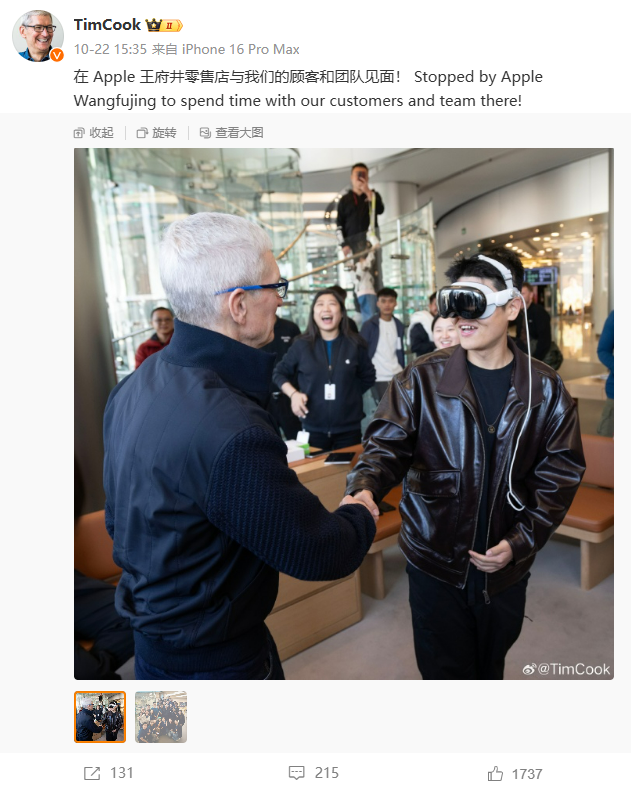
During this year's Apple Fall event, Cook provided a detailed introduction on how AI will seamlessly integrate with the iPhone 16 Pro series. Ideally, through Apple Intelligence, the AI functions of the iPhone 16 can call on various modules in the phone to synchronize user needs in real-time and complete tasks such as tagging and transactions.
In a recent exclusive interview with foreign media, Apple CEO Tim Cook once again demonstrated how Apple Intelligence is applied and called it another "big gamble" for Apple. He compared Apple Intelligence to innovative technologies like the iPod's click wheel and the iPhone's touch interface, stating, "When we look back, we'll see this as an opportunity that set you on a different technology curve."
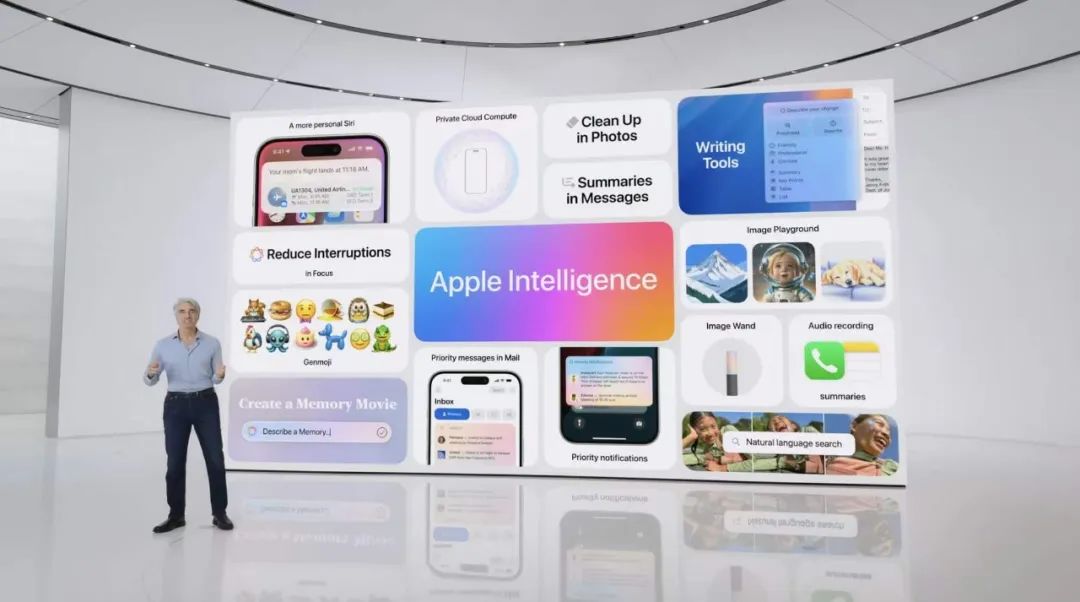
As one of the world's top-selling phone manufacturers, Apple sells seven iPhones every second. This enormous base may be the source of Cook's confidence in AI.
The outcome of this bold gamble will become apparent on October 28. Starting that day, native US users of the iPhone 16 Pro series can be the first to experience these AI features; however, due to regulatory processes and other issues, domestic users may have to wait until 2025.
How could Cook not be anxious? In Q2 2023, China surpassed the US for the first time to become the world's largest iPhone market. But China is also the most competitive market for Apple, as domestic brands are growing at a remarkable pace.
According to third-party data, in August this year, Huawei's domestic sales surpassed Apple's for the first time in 46 months. Besides strong models like the Huawei Pura70 and Mate60 series, Huawei also leads the domestic market share in high-end foldable phones with a 30% share.
Not only Huawei and Xiaomi, but OPPO and vivo are also launching models that resemble Apple's design, such as right-angle frames and ultra-narrow bezels, all on the path of imitating or even surpassing Apple. Lei Jun once bluntly stated that Apple is Xiaomi's first target in the high-end market. Since the Xiaomi 13 series, Xiaomi has always benchmarked itself against the latest iPhone of the year.
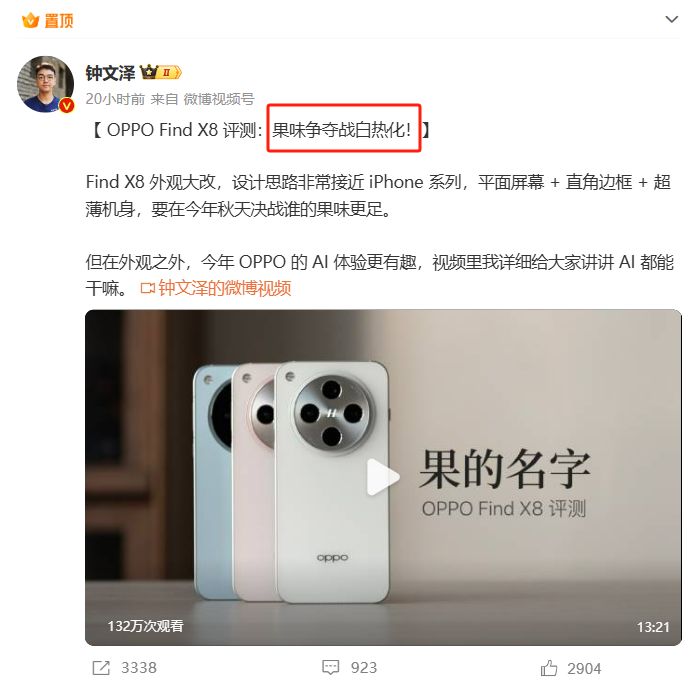
▲A tech reviewer described this year's phone market as a "fruit flavor battle"
Faced with domestic brands' aggressive competition, iPhone has almost no room for error. Every delay in its response gives Chinese companies more opportunities, such as in the layout of generative AI.
OpenAI recently predicted that 2025 will be the year when AI agent systems finally become mainstream. However, it's evident to all that Apple's AI implementation has been slow.
No wonder Apple employees complain that their AI is two years behind the industry. Apple's biggest rival, Samsung, launched generative AI features on its latest flagship phone in January this year, and usage exceeded expectations. However, Apple's Apple Intelligence hasn't been implemented even after 10 months.
Meanwhile, domestic phone manufacturers have made generative AI their biggest marketing point this year. For example, Huawei's MagicOS 9.0 claims that the number of AI scene intent decision coverage scenarios has increased from 100 to 600. Vivo also built its newly released 3B large model into its new phone system this year. The company claims that this model is not only smaller than the previous generation but also offers several times the performance in dialogue writing, information extraction, and other areas. Xiaomi's flagship phones also come equipped with a self-developed generative AI engine, enhancing photography and video editing capabilities as well as voice assistant and smart recommendation features.
Although some believe the current AI competition is merely a gimmick for manufacturers to attract users, lacking real-world application scenarios, and that differentiation or a gap cannot be created in the short term, for domestic consumers looking to upgrade their phones for AI features, the later Apple's AI arrives, the greater the probability of them switching allegiances.
This must keep Cook up at night.
Although, in response to internal employees' view that Apple's AI is at least two years behind, Cook emphasized that Apple focuses more on delivering the best experience to users rather than competing for market pioneer status, it's crucial for Apple how many users can experience this "best experience" that gives Cook confidence.
From the perspective of AI technology laws, the larger the user base and data volume, the faster AI iteration occurs. From an industry competition perspective, there are only a limited number of high-end users looking to upgrade for AI experiences. For every percentage point gained by competitors, Apple's empire is eroded.
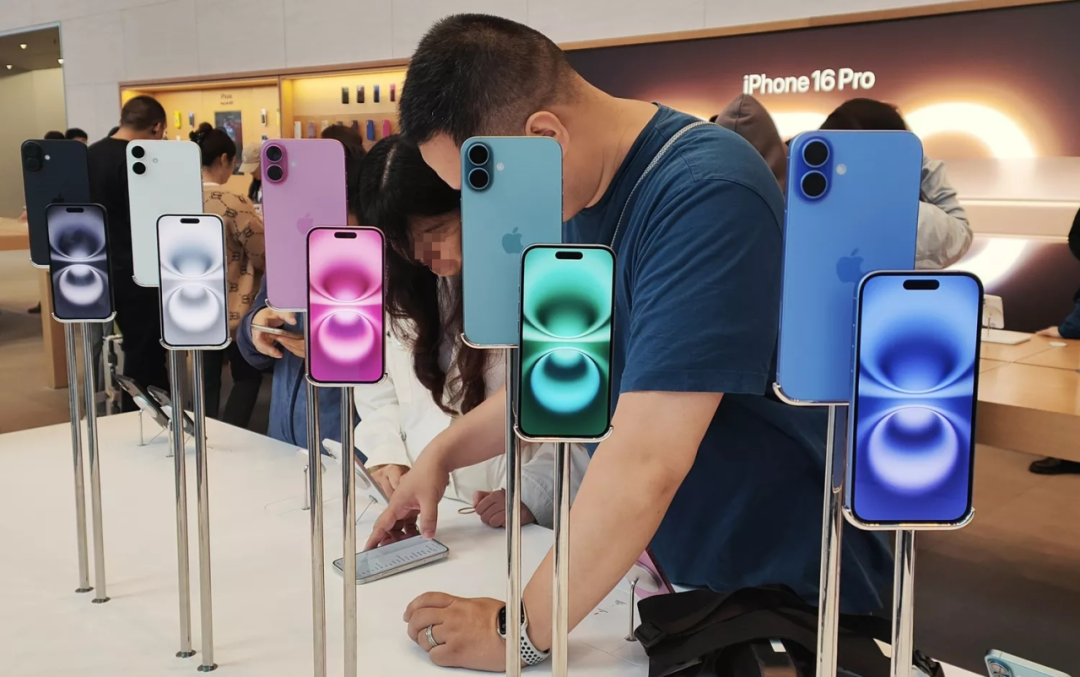
Thus, Apple's tacit approval of price cuts seems more like going with the flow. Whether it's Apple or Tim Cook himself, what they're nervous about may not be shipments per se but ensuring that before the AI features are launched in China next year, the iPhone can secure a larger market space at a lower price.
In other words, whether Apple's AI gamble succeeds depends, to some extent, on how quickly Cook can sell more iPhone 16 Pro series phones.
This is another challenge facing Apple. Cook needs more "chips" in his hand.








